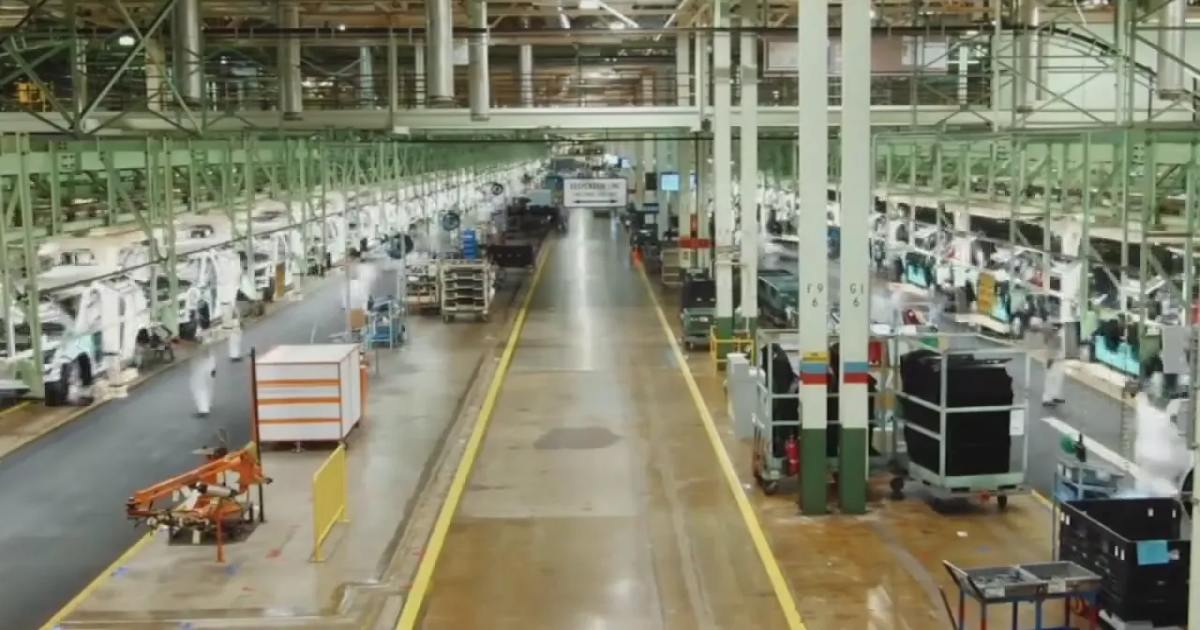DETROIT (FOX 2) – President Donald Trump announced the next round of tariffs, this time targeting the auto industry and cars brought into the U.S.
What we know:
The next round of the tariff wars starts on April 2 and this time the Trump Administration is focusing on imported vehicles and parts. That can mean sticker shock likely coming to a dealership near you.
Trump signed an executive order implementing a 25% tariff on all vehicles built outside the U.S. The tariffs would be in addition to other tariffs already implemented on the same products.
What they’re saying:
George Glassman is one of the many auto dealers who will be grappling with the new tariffs, and he says the entire industry will feel it.
“You’re going to see higher prices, and it’s going to have a chilling effect in my opinion,” Glassman said. “With half of all vehicles that are sold in the United States coming from overseas, it can’t do anything other than create major disruption across the automotive industry.”
Analysts say the move is part of a strategy by the Trump Administration to get auto companies to increase their amount of car and truck production in the U.S.
“And what that means is a lot of foreign car companies, a lot of companies are going to be in great shape because they’ve already built their plant. But their plants are under-utilized, so they’ll be able to expand them inexpensively and quickly,” Trump said. “But others will come into our country and build, and they’re already looking for sites.”
But that doesn’t automatically give the Detroit Three the advantage, according to Jan Griffiths – a former auto supplier executive.
“So that would be German vehicles that are produced in Germany, Japanese vehicles that are produced in Japan, British vehicles: Range Rover, Land Rover for example. produced in the UK, all of those vehicles will have a 25% tariff,” Griffiths said. “At first you might think well this is great news – everybody is going to buy U.S. made vehicles. The catch is a significant amount of the vehicles sold in the U.S. by the Big Three are actually made in Mexico and Canada, and, as far as we know, they will be subject to the 25% tax.”
What’s more, if the tariffs stay in place for several months, just as some economists see a recession on the horizon, that could mean bad news for autoworkers in our area.
“Then I think that the combined effect of those two things could be significant on auto jobs in the United States and you could see some sizable layoffs across all three companies,” said Professor Marick Masters with Wayne State University.
Big picture view:
Auto manufacturers like Ford and General Motors are some of the biggest employers in Michigan and represent a massive share of the American market.
In February, Ford CEO Jim Farley told investors during a conference that tariffs would “blow a hole” in the U.S. auto industry.
American car companies rely heavily on auto imports from Canada and Mexico and tariffs on both countries could raise the cost of materials and supplies, which could push the increase onto the consumer.
According to the Associated Press, the tariffs would disrupt “more than $300 billion in annual U.S. automotive trade” with both countries, posing an existential threat to the production.
Kelley Blue Book, which tracks the selling price of cars and trucks, said consumers may pay as much as $10,000 more for a full-sized truck, while about $3,000 for an average new car.
The pain would intensify if Canada and Mexico added their own tariffs, the AP said.
What we don’t know:
While the tariffs will bring in revenue based on the tax on imported vehicles, experts believe the price will rise higher for consumers who need to purchase a new vehicle.
The president has previously announced tariffs of 25% on steel and aluminum imports from Canada and Mexico, as well as 10% tariffs on imports from China.
The Source: FOX 2 talked with Professor Marick Masters, Jan Griffiths, and George Glassman. We also used information from previous reporting.
Featured
Trump unveiled new tariffs on auto imports Wednesday, speaking from the Oval Office as he signed an executive order that would implement a 25% tariff on foreign autos.
DetroitDonald J. TrumpCars and TrucksAutoMichigan




